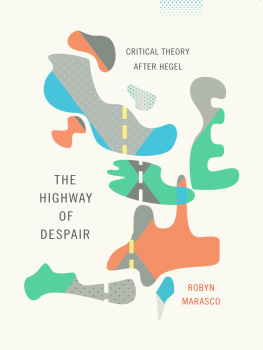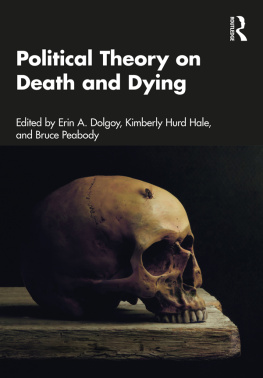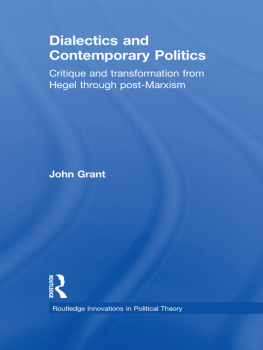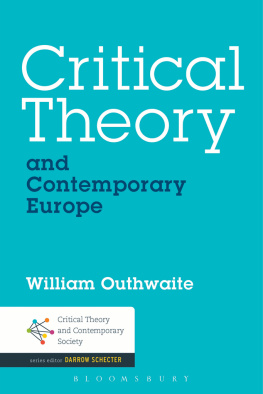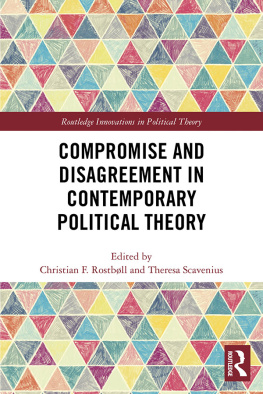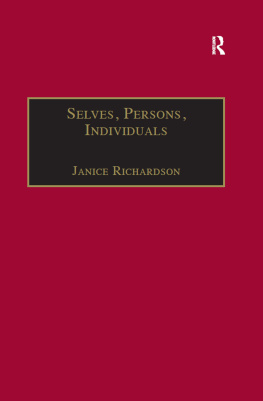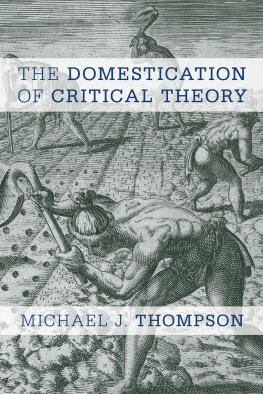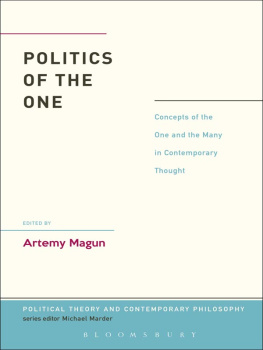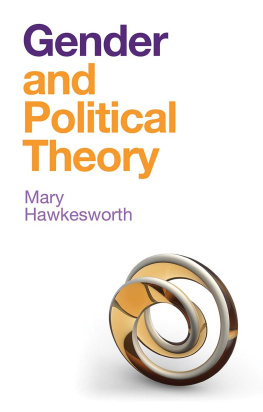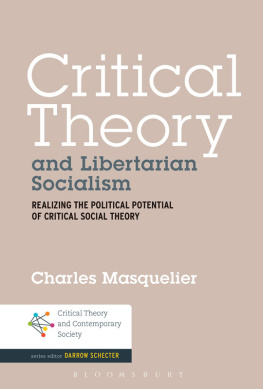THE HIGHWAY OF DESPAIR
New Directions in Critical Theory
NEW DIRECTIONS IN CRITICAL THEORY
Amy Allen, General Editor
New Directions in Critical Theory presents outstanding classic and contemporary texts in the tradition of critical social theory, broadly construed. The series aims to renew and advance the program of critical social theory, with a particular focus on theorizing contemporary struggles around gender, race, sexuality, class, and globalization and their complex interconnections.
Narrating Evil: A Postmetaphysical Theory of Reflective Judgment, Mara Pa Lara
The Politics of Our Selves: Power, Autonomy, and Gender in Contemporary Critical Theory, Amy Allen
Democracy and the Political Unconscious, Nolle McAfee
The Force of the Example: Explorations in the Paradigm of Judgment, Alessandro Ferrara
Horrorism: Naming Contemporary Violence, Adriana Cavarero
Scales of Justice: Reimagining Political Space in a Globalizing World, Nancy Fraser
Pathologies of Reason: On the Legacy of Critical Theory, Axel Honneth
States Without Nations: Citizenship for Mortals, Jacqueline Stevens
The Racial Discourses of Life Philosophy: Ngritude, Vitalism, and Modernity, Donna V. Jones
Democracy in What State?, Giorgio Agamben, Alain Badiou, Daniel Bensad, Wendy Brown, Jean-Luc Nancy, Jacques Rancire, Kristin Ross, Slavoj iek
Politics of Culture and the Spirit of Critique: Dialogues, edited by Gabriel Rockhill and Alfredo Gomez-Muller
Mute Speech: Literature, Critical Theory, and Politics, Jacques Rancire
The Right to Justification: Elements of Constructivist Theory of Justice, Rainer Forst
The Scandal of Reason: A Critical Theory of Political Judgment, Albena Azmanova
The Wrath of Capital: Neoliberalism and Climate Change Politics, Adrian Parr
Media of Reason: A Theory of Rationality, Matthias Vogel
Social Acceleration: The Transformation of Time in Modernity, Hartmut Rosa
The Disclosure of Politics: Struggles Over the Semantics of Secularization, Mara Pa Lara
Radical Cosmopolitics: The Ethics and Politics of Democratic Universalism, James Ingram
Freedoms Right: The Social Foundations of Democratic Life, Axel Honneth
Imaginal Politics: Images Beyond Imagination and the Imaginary, Chiara Bottici
Alienation, Rahel Jaeggi
The Power of Tolerance: A Debate, Wendy Brown and Rainer Forst, edited by Luca Di Blasi and Christoph F. E. Holzhey
Radical History and the Politics of Art, Gabriel Rockhill
THE
HIGHWAY
OF
DESPAIR
CRITICAL THEORY AFTER HEGEL
Robyn Marasco
Columbia University Press
New York
Columbia University Press
Publishers Since 1893
New York Chichester, West Sussex
cup.columbia.edu
Copyright 2015 Columbia University Press
All rights reserved
E-ISBN 978-0-231-53889-3
Library of Congress Cataloging-in-Publication Data
Marasco, Robyn.
The highway of despair : critical theory after Hegel / Robyn Marasco.
pages cm. (New directions in critical theory)
Includes bibliographical references and index.
ISBN 978-0-231-16866-3 (cloth : alk. paper)
ISBN 978-0-231-53889-3 (e-book)
1. Criticism (Philosophy) 2. Critical theory.
3. Hegel, Georg Wilhelm Friedrich, 17701831.
4. Dialectic. 5. Despair. I. Title.
B809.3.M364 2015
190dc23 2014014339
A Columbia University Press E-book.
CUP would be pleased to hear about your reading experience with this e-book at .
Jacket design by Jennifer Heuer
References to websites (URLs) were accurate at the time of writing. Neither the author nor Columbia University Press is responsible for URLs that may have expired or changed since the manuscript was prepared.
In loving memory of my father, Robert F. Marasco
CONTENTS
I have had the privilege to study and teach at great institutions and each has supported my scholarly work beyond measure. I was taught how to do political theory by Wendy Brown and her mentorship allowed me to believe that I might be suited to it. Wendy supervised my work, wrote letters on my behalf, gave essential commentary on several drafts of this work, and responded to every single email. Beyond that, she offered steady encouragement and guidance, patience, and humanity. I am grateful to many other Berkeley facultyJudith Butler, Martin Jay, Victoria Kahn, and Paul Thomasfor their feedback on my research. Many thanks, also, to the director and fellows at the Townsend Center for the Humanities and to Jean Day, the associate editor at Representations.
The intellectual and personal relationships that I formed in my Berkeley years remain my most important and enduring. Sharon Stanley read this manuscript in its entirety and offered astute suggestions for revisions. Jimmy Klausen has been a steady and cherished interlocutor. Beyond that, both Sharon and Jimmy have offered that rare experience of friendship that confirms I am never alone. My thinking has been shaped by many conversations with Yves Winter, George Ciccariello-Maher, Abbey Ciccariello-Maher, Ivan Asher, Simon Stow, Dean Mathiowetz, Bibi Obler, James Martel, Libby Anker, Annika Thiem, Jack Jackson, Julie Cooper, Bob Taylor, Michael Feola, Ed Fogarty, and Sebastin Etchemendy. I am grateful that Nick Xenos encouraged me to go to Berkeley so many years ago and that he remains a true comrade. Antonio Vazquez-Arroyo deserves special recognition for being my favoriteand most frequentcopanelist.
I spent my first years as an assistant professor at Williams College, where I learned how to teach and why the classroom is an extraordinary place. I profited immensely from discussions with other faculty, especially Michael MacDonald, Darel Paul, Mark Reinhardt, Theo Davis, Keith McPartland, Monique Deveaux, Neil Roberts, Jana Sawicki, and Christian Thorne, as well as several studentsJos Martnez, Lauren Guilmette, Blake Emerson, Samantha Demby, and Hari Ramesh, among others.
I have been fortunate to expand my intellectual community at conferences and in other academic settings. I want to thank Banu Bargu, Jodi Dean, Patchen Markell, Davide Panagia, John McCormick, Shirin Deylami, Lori Marso, Melissa Matthes, Kennan Ferguson, Tom Dumm, Laurie Naranch, Mort Schoolman, Michaele Ferguson, Jill Locke, Steven Johnston, Paul Apostolidis, Sharon Krause, Andrew Dilts, Corey Robin, Cristina Beltrn, George Shulman, Roger Berkowitz, Jennifer Culbert, Kam Shapiro, Andrew Douglas, Claudia Leeb, Nicholas Tampio, and Michelle Smith for their critical responses to and engagement with my work. And I am especially grateful for an afternoon coffee with Joshua Dienstag and Lisa Ellis at an APSA meeting for the spontaneous and informal workshop that resulted in a title for this book. Many thanks to John Lysaker, John Russon, and the other participants in the History of Philosophy Seminar at Emory University, who gave me the opportunity to put Hegel and Adorno into dialogue with the ancients. Chapters from this manuscript were presented to the departments of political science at Yale University and Johns Hopkins University, where I received excellent feedback from faculty and graduate students.
My department at Hunter College has been a vital source of support for my research and teaching. Andy Polsky was department chair when I was hired and a model for how to combine research excellence, quality instruction, and effective administration. Charles Tien has been chair for several years since and a crucial source of encouragement and guidance. My political theory colleaguesJohn Wallach, Ros Pechetsky, and Lennie Feldmanare brilliant minds, great mentors, and splendid human beings. And my colleagues in the other subfields have offered generosity and insight, confirming that education is a collective enterprise. I must also thank Jennifer Gaboury, associate director of the Women and Gender Studies Program at Hunter, for her commitment to the college, her tireless engagement with my work, and her invaluable friendship.

